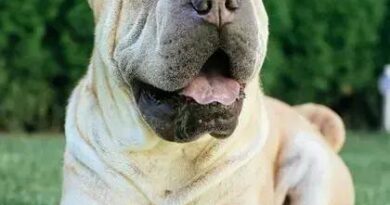O que é formação de hábitos
What is Habit Formation?
Habit formation refers to the process through which behaviors become automatic responses to specific cues or contexts. In the realm of dog training, understanding habit formation is crucial for developing effective strategies that encourage positive behaviors in our canine companions. This process involves repetition, reinforcement, and the establishment of routines that help dogs learn what is expected of them in various situations.
The Science Behind Habit Formation
At its core, habit formation is rooted in behavioral psychology. When a dog performs a behavior and receives a reward, the likelihood of that behavior being repeated increases. This is known as operant conditioning, a fundamental principle that explains how habits are formed. By consistently rewarding desired behaviors, dog owners can effectively shape their pets’ actions over time, leading to the establishment of strong, positive habits.
The Role of Consistency in Habit Formation
Consistency is key when it comes to habit formation in dogs. Dogs thrive on routine and predictability, which helps them understand what is expected of them. By consistently applying the same commands, rewards, and consequences, owners can reinforce desired behaviors and discourage unwanted ones. This consistency not only aids in habit formation but also strengthens the bond between the dog and its owner, fostering a sense of trust and security.
Positive Reinforcement and Habit Formation
Positive reinforcement plays a pivotal role in the habit formation process. This technique involves rewarding a dog for exhibiting a desired behavior, which encourages the repetition of that behavior in the future. Rewards can come in various forms, including treats, praise, or playtime. By focusing on positive reinforcement, owners can create a more enjoyable training experience for their dogs, making it easier to establish and maintain good habits.
Identifying Triggers for Habit Formation
Understanding the triggers that lead to specific behaviors is essential for effective habit formation. Triggers can be environmental cues, such as the sound of a leash or the sight of a treat bag, that prompt a dog to engage in a particular behavior. By identifying these triggers, owners can strategically use them to reinforce positive habits and redirect negative ones, ultimately shaping their dog’s behavior in a more constructive manner.
The Importance of Patience in Habit Formation
Habit formation is not an overnight process; it requires patience and persistence. Dogs, like humans, need time to learn and adapt to new behaviors. Owners should be prepared for setbacks and understand that progress may be gradual. By maintaining a patient and positive attitude, owners can create an environment conducive to habit formation, allowing their dogs to thrive and learn at their own pace.
Common Mistakes in Habit Formation
There are several common mistakes that dog owners make when attempting to establish habits. One of the most significant errors is inconsistency in training methods. When commands, rewards, or consequences vary, dogs can become confused, making it difficult for them to learn desired behaviors. Additionally, relying solely on punishment rather than positive reinforcement can lead to fear and anxiety, hindering the habit formation process.
The Impact of Environment on Habit Formation
The environment plays a crucial role in habit formation for dogs. A calm and controlled setting can facilitate learning, while a chaotic or distracting environment can hinder progress. Owners should strive to create a conducive atmosphere for training sessions, minimizing distractions and providing a safe space for their dogs to focus on learning new habits. This thoughtful approach can significantly enhance the effectiveness of training efforts.
Long-Term Maintenance of Habits
Once a habit is formed, it is essential to maintain it over the long term. This involves ongoing reinforcement and occasional refreshers to ensure that the behavior remains consistent. Regular practice and positive reinforcement can help solidify good habits, making them an integral part of a dog’s daily routine. By prioritizing long-term maintenance, owners can ensure that their dogs continue to exhibit desirable behaviors throughout their lives.



